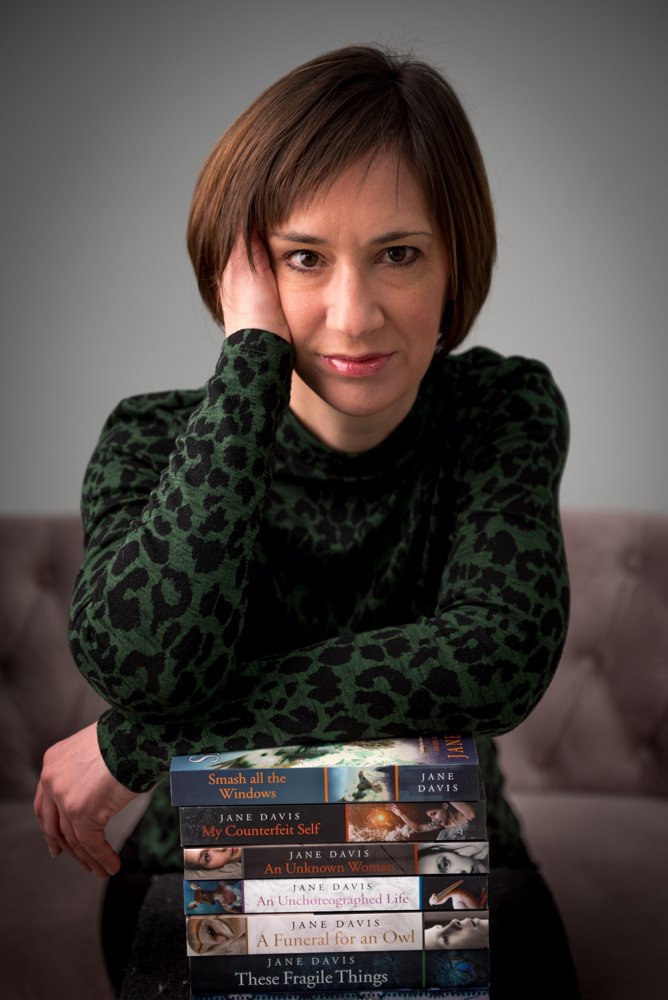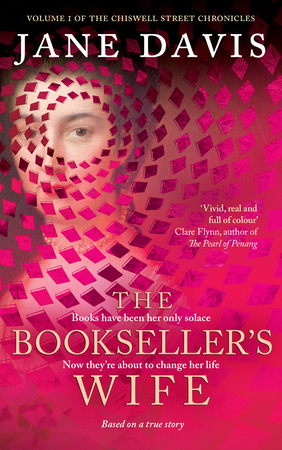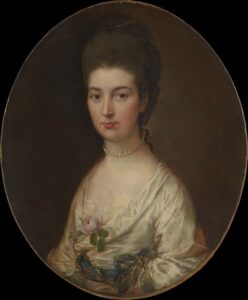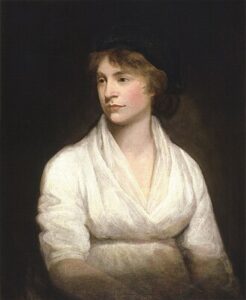 Today I’m delighted to welcome writing friend Jane Davis back to the writing blog. I’ve loved her books; they regularly appear in my best books of the year round up. Her first novel, ‘Half-Truths and White Lies’’, won a national award established with the aim of finding the next Joanne Harris.
Today I’m delighted to welcome writing friend Jane Davis back to the writing blog. I’ve loved her books; they regularly appear in my best books of the year round up. Her first novel, ‘Half-Truths and White Lies’’, won a national award established with the aim of finding the next Joanne Harris.
Further recognition followed in 2016 with ‘An Unknown Woman’ being named Self-Published Book of the Year by Writing Magazine/the David St John Thomas Charitable Trust, as well as being shortlisted in the IAN Awards, and in 2019 with ‘Smash all the Windows’’ winning the inaugural Selfies Book Award. Her novel, ‘At the Stroke of Nine O’Clock’ was featured by The Lady Magazine as one of their favourite books set in the 1950s, selected as a Historical Novel Society Editor’s Choice, and shortlisted for the Selfies Book Awards 2021.
Interested in how people behave under pressure, Jane introduces her characters when they are in highly volatile situations and then, in her words, she throws them to the lions. The themes she explores are diverse, ranging from pioneering female photographers, to relatives seeking justice for the victims of a fictional disaster.
Jane lives in Carshalton, Surrey, in what was originally the ticket office for a Victorian pleasure gardens, known locally as ‘the gingerbread house.’ Her house frequently features in her fiction. In fact, she burnt it to the ground in the opening chapter of ‘An Unknown Woman’ and in ‘Small Eden’ it was the gardener’s cottage. When she isn’t writing, you may spot Jane disappearing up the side of a mountain with a camera in hand.
Now she’s letting me grill her about her latest, The Bookseller’s Wife.
What was the seed of the story in The Bookseller’s Wife?
In September 2022, I took a small research trip to the ancient church of St Mary’s in Merton. Small, because it’s only a ten-minute walk from my mother’s house. As a child, I took ballet lessons in the parish hall, but I rarely ventured inside the church, which dates from the tenth century. My intention was to visit the place where Nelson worshiped and see his custom-made bench, now heavily alarmed, but which one of my aunts was given special permission to sit on when she was a seven-year-old bridesmaid at her sister’s wedding. Walking among the gravestones, one caught my eye.
DORCAS, WIFE OF J LACKINGTON
Bookseller, Finsbury Square
Died January 27th 1795, aged 46 years.
What could be more intriguing? I read in the church guide that Dorcas was an avid reader of novels and took a leading share in running her husband’s book shop – The ‘Temple of the Muses,’ Finsbury Square. I had to know more!
Where did your research lead you?
I learned from parish records that Dorcas was the sole survivor of six children born to Jemima Turton and her husband, Samuel. The statistic seems shocking now, but in 18th century London only one in five children made it to the age of five.
As always with historical research, it’s easier to find information about a man than a woman, and so I turned first to her husband. James Lackington left us with two memoirs, written primarily to promote himself as a successful entrepreneurial innovator in the world of bookselling. While his writing must be taken with a liberal pinch of salt, there is substance in dates and key events.
James Lackington’s memoirs tell us that Dorcas’s mother, Jemima Turton, was grand-daughter of the Honourable Sir John Turton, Baron of the Exchequer and Justice of the King’s Bench. She was so proud of her lineage that she kept her maiden name in the only way a woman could – by marrying a man with the same surname, possible a cousin. Since Samuel Turton had a fortune of his own, the family should have been comfortably off, but owing to ‘an unhappy turn for gaming,’ he was forced to turn to trade. Even after setting himself up as a saddler’s ironmonger, he couldn’t give up gambling. These days we would recognise addiction rather than weakness of character. Jemima Turton didn’t live to see her husband’s financial ruin, dying in early 1773. Dorcas then supported her father, setting up a day-school for girls and taking in needlework.
How old was Dorcas at that time?
We meet Dorcas when she is twenty-five, a pivotal age for woman. Jane Barker wrote in her 1688 poem, A Virgin Life, that she hoped was able to remain ‘Fearless of twenty-five and all its train, / Of slights or scorns, or being called Old Maid.’ With the average age for marriage standing at seventeen, she would be passing from a young single woman to old maid, and very much aware that her marriage prospects were rapidly decreasing.
You mention that Dorcas set up a day-school for girls. What kind of education would she have received?
While sons of her class were often sent to boarding schools, girls were might be sent to ‘dame schools’ but more commonly were taught by governesses at home. Lessons might involve reading, writing, languages and music, but the chief emphasis was to prepare girls to become to become wives and mothers.
A popular book at the time was The Governess by Sarah Fielding. It begins with an introduction:
‘The Design of the following Sheets is an endeavour to cultivate an early inclination to Benevolence, and a love of Virtue in the minds of young women, by trying to shew them that their True Interest is concerned in cherishing and improving those amiable Dispositions into Habits and keeping down all rough and boisterous Passions, and that from this alone they can propose to themselves to arrive at true Happiness in any of the Stations in Life allotted to the Female Character.’
I don’t know about you, but already I find myself chaffing – and that is before we learn that ‘Mr Teachum was a very sensible man who took great pains in improving his wife.’
But changes were afoot. Towards the end of the century, support for the education of daughters was mounting. The growing merchant class saw the importance of educating daughters so that they could take active roles in the running of family businesses. Early campaigners that daughters’ education should equal sons’ included Mary Wollstonecraft, the mother of Mary Shelley.
Like Dorcas, Mary Wollstonecraft was born into prosperity to a father who squandered the family money. And like Dorcas, Wollstonecraft opened a small girls’ school. She would go on to write A Vindication on the Rights of Women and Thoughts on the Education of Daughters, arguing that daughters who were raised from an early age to prize physical beauty and personal charms made poor citizens, inadequate companions to men, and even ineffective mothers. She insisted that education should be universal and freely accessible, so that women could cultivate their minds, learn skills and gain financial independence. I like to think that although Dorcas turned to teaching out of necessity, she would have shared those views.
The other thing that we learn from James Lackington’s memoirs is that Dorcas was immoderately fond of books, and would frequently read until morning… Who having acquired a few ideas, was at that time restless to increase them. The picture we get is of a young woman who is curious, intelligent, practical and resourceful.
Thank you, Jane. These are particularly pertinent thoughts during Women’s History Month.
And Jane has given us the treat of an excerpt from The Bookseller’s Wife:
As she brushes out her hair Dorcas mulls over the evening’s conversation. Is there one among her pupils who could do great things? Judith, perhaps? In her mind’s eye, she sees John Milton’s Eve, peering into a pool of still water and falling in love with her own reflection. But it’s unfair to single out Judith. Are her girls even aware of what possibilities might be open to them? Though there are constant murmurings of a cultural revolution, Dorcas reluctantly concedes that her father was right: Bassi was an exception. So too are almost all of the remarkable contemporary women Dorcas can name. Would Elizabeth Caslon have been in a position to put her name to a company had her husband not died without making a will? Dorcas’s brush snags on a knot. She takes a fistful of hair close to her scalp so that she can work at it. Whenever a woman is strong or intelligent or steps away from the hearth, it is said that she possesses masculine qualities. This is the world her pupils must navigate. One that is hostile to women who dare to display confidence, fail to fawn, and when cut off mid-sentence by fathers or husbands, do not lower their doe-like eyes in submission.
Yet these obstacles shouldn’t deter Dorcas. Provided her pupils’ conversation sparkles, provided they know when to be sweetness and light, there is nothing to prevent her from introducing examples of remarkable womanhood into their lessons. How else shall they develop ambitions of their own? After all, earlier this century a female monarch sat on the throne. Is that perhaps a suitable question for discussion? Why a female monarch failed to promote the education of women, so that they might be admitted to universities and thence to the professions? Dorcas sets down her brush. It would be a start.
What’s The Bookseller’s Wife about?
Books have been her only solace. Now they’re about to change her life.
 London, 1775: The only surviving child of six, Dorcas Turton should have been heiress to a powerful family name. But after her mother’s untimely death, she is stunned by the discovery that her father’s compulsive gambling has brought them close to ruin. With the threat of debtor’s prison looming large, she must employ all her ingenuity to keep their creditors at bay.
London, 1775: The only surviving child of six, Dorcas Turton should have been heiress to a powerful family name. But after her mother’s untimely death, she is stunned by the discovery that her father’s compulsive gambling has brought them close to ruin. With the threat of debtor’s prison looming large, she must employ all her ingenuity to keep their creditors at bay.
Fortunately, ingenuity is something Dorcas is not short of. An avid reader, novels have taught her the lessons her governess failed to. Forsaking hopes of marriage and children, she opens a day-school for girls. But unbeknown to Dorcas, her father has not given up his extravagant ways. When bailiffs come pounding on the door, their only option is to take in lodgers.
The arrival of larger-than-life James Lackington and his wife Nancy breathes new life into the diminished household. Mr Lackington aspires to be a bookseller, and what James Lackington sets out to do, he tends to achieve. Soon Dorcas discovers she is not only guilty of envying Mrs Lackington her strong simple faith and adaptable nature. Loath though she is to admit it, she begins to envy her Mr Lackington…
Based on a true story, Jane Davis’s latest historical novel is for book-lovers everywhere, delivering unforgettable characters, a portrait of Georgian London on the brink of change, and a love song to the life-changing power of the written word.
Buy now at your favourite ebook store: https://books2read.com/thebooksellerswife (universal link)
Paperback release date: 16 April 2024
––––––––––
Connect with Jane
Website: https://jane-davis.co.uk
Facebook: https://www.facebook.com/JaneDavisAuthorPage/
Twitter/X: https://twitter.com/janedavisauthor
Goodreads: https://www.goodreads.com/author/show/6869939.Jane_Davis
––––––––––
My thoughts
Absorbed by Dorcas’s character and values as I was, I found Jane’s vivid and detailed description of her life, her environment and her decisions outstanding. Here is a young woman as intelligent and capable as Jane Eyre, and as principled and determined as Lizzy Bennett. Faced with penury, she gathers up her inner strength and sets to in a practical way to make her life possible and passable. Resolute is a word that could apply to her, especially in respect of her tiresome father.
Every page is a treat – the writing is excellent. I thoroughly recommend this thoughtful and clever read.
Alison Morton is the author of Roma Nova thrillers – INCEPTIO, CARINA (novella), PERFIDITAS, SUCCESSIO, AURELIA, NEXUS (novella), INSURRECTIO and RETALIO, and ROMA NOVA EXTRA, a collection of short stories. Audiobooks are available for four of the series. Double Identity, a contemporary conspiracy, starts a new series of thrillers. JULIA PRIMA, Roma Nova story set in the late 4th century, starts the Foundation stories. The sequel, EXSILIUM, is now out.
Find out more about Roma Nova, its origins, stories and heroines and taste world the latest contemporary thriller Double Identity… Download ‘Welcome to Alison Morton’s Thriller Worlds’, a FREE eBook, as a thank you gift when you sign up to Alison’s monthly email update. You’ll also be among the first to know about news and book progress before everybody else, and take part in giveaways.
















Leave a Reply